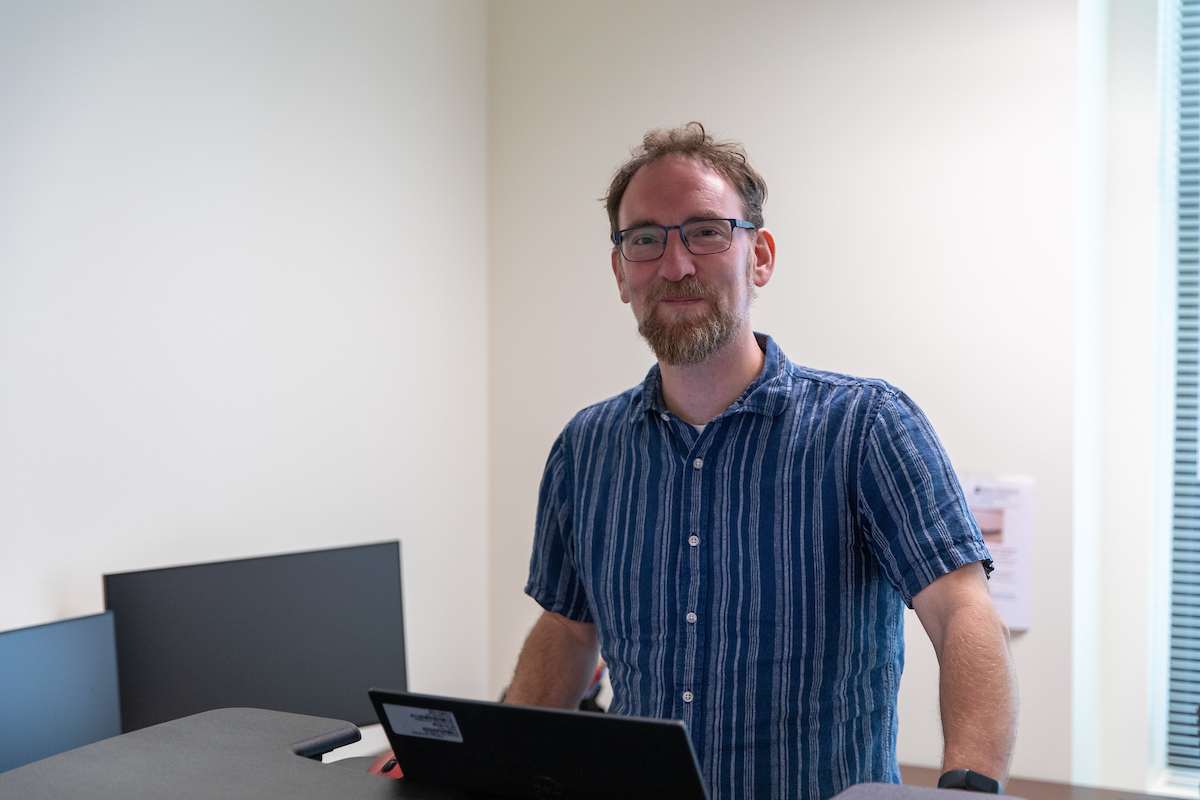 Photo by Keeton Holder/DePaul University
Photo by Keeton Holder/DePaul UniversityFor Nick Obis, DePaul's employee relations and equal employment opportunity specialist, setting up DePaul employees for success is more than just a job. It's an opportunity to strategize equity in the workplace by fostering connections with people of different backgrounds and welcoming supportive work environments for employees of all cultural identities and abilities.
From remote work accommodations to accessible technology in the workplace, Obis is dedicated to DePaul's Vincentian values of equity and diversity. Though he didn't always know he would pursue a career in human resources, he loves the work he does because of the communities he supports.
“I like working with people, helping people through things and finding solutions," Obis says. “I always had an interest in education, too." His work in Human Resources allows him to engage in all these things.
For National Disability Employment Awareness Month this October, Obis introduces us to his role educating others about disability rights and how to work together to build a healthy, welcoming and successful work environment at DePaul.
Tell us about your job and what employee accommodations might look like.
Accommodations can be anything from ergonomic chairs and standing desks to widescreen monitors and remote work flexibility –whatever change to the job or work environment that will help the employee perform their job. When an employee requests an accommodation, we engage in an interactive process that involves gathering information about the essential functions of the job, exploring options and then choosing an accommodation.
We also consult with managers to ensure that the accommodation can be implemented without creating what is called an "undue hardship" on the university, making sure we respect the privacy of the employee's health information along the way.
Outside of legal requirements, why do you think it is important to create an accessible and accommodating environment at DePaul?
It's important as part of embracing our diverse community and creating equity and inclusion – to welcome people with disabilities into our community and workplace. It's good for all employees to be part of a community that supports people's needs and their ability to complete essential job functions. I just think it simply creates a good space to work in and reflects our Vincentian character.
Tell us more about how DePaul's Vincentian values influence your approach to employee relations at DePaul.
In employee relations we focus on "what must be done," as St. Vincent was fond of asking. We work to create a space where everyone is treated with dignity and respect and we pay special attention to marginalized communities, including the disabled community, which is often overlooked.
A big part of working in accommodations is understanding that disabilities happen to everyone at some point, whether temporarily or permanently. We all age, deal with illness and deal with accidents. I am grateful to be part of an institution that is built on these Vincentian values of compassion, dignity and social justice because when the time comes for me to seek an accommodation to help me perform my job, I know that the university will support me.
What is your favorite part about the work that you do at DePaul?
I think it's very satisfying to set up accommodations for those who need them. It's very gratifying. Providing accommodations allows me to actively spend time working towards Vincentian values – a belief in the dignity of every individual and paying attention to the marginalized. I also enjoy helping managers understand how to create a better workplace and become better leaders. I'm glad to be a part of a job that values everyone in the community.